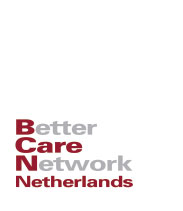Op de internationale website www.bettercarenetwork.org staan weer een groot aantal nieuwe documenten:
Misguided Kindness: Making the Right Decisions for Children in Emergencies
Using lessons learnt in emergencies, from the genocide in Rwanda to the Asian Tsunami and the earthquake in Haiti, Misguided Kindness, demonstrates what action is needed to keep families together during crises and to bring separated children back into a safe and nurturing family life. Save the Children warns that people who support orphanages or international adoption in the belief that they’re doing the best for children suffering after a major emergency could in fact be putting those children in even more danger.Read the full report at: http://www.crin.org/bcn/details.asp?id=23753&themeID=1005&topicID=1033
Voices of America Examines Inter-Country Adoption, Child Welfare in Ethiopia in a Two Part Series
Part I: Under Pressure, Ethiopia Plans Crackdown on Baby Business: Ethiopia is planning to shut down dozens of orphanages and withdraw accreditation from several foreign adoption agencies, in an effort to halt what critics say is a thriving baby business the rapid rise in Ethiopian adoptions has set off alarm bells among children’s lobby groups. The U.S. State Department issued a statement this month expressing concern about reports of adoption-related fraud, malfeasance and abuse in Ethiopia. Read the entire article at: http://www.voanews.com/english/news/Under-Pressure-Ethiopia-Plans-Crackdown-on-Baby-Business-111848424.html
Part II: Ethiopia Working with Child Advocacy Groups to Clean Up Adoptions
Ethiopia is vowing to put a stop to what has been described as a ’free for all’ in the adoption of its children by foreigners. But cleaning up a system rife with fraud and deception will require international assistance to fight well-entrenched and well-financed interests. Part two of this series will examine whether an impoverished country like Ethiopia, with a weak social services infrastructure, can successfully fight the moneyed interests intent on keeping the baby pipeline open. And, if they do succeed, whether the phenomenon will simply pop up in another part of the globe. Read more at: http://www.voanews.com/english/news/africa/Ethiopia-Working-with-Child-Advocacy-Groups-to-Clean-Up-Adoptions--112078034.html
HIV - Sensitive Social Protection: What does the evidence say?
HIV and AIDS can push people and households into poverty, in part by reducing household labour capacity and increasing medical expenses. In some cases, HIV-related stigma and discrimination marginalizes people living with HIV and households affected by the virus, and excludes them from essential services. While many social protection schemes were not set up with HIV as a primary focus, their potential to contribute to a comprehensive HIV response is increasingly recognized. The UNAIDS business case on social protection, which was a catalyst for the development of this paper, shows how HIV-sensitive social protection can reduce vulnerability to HIV infection, improve and extend the lives of people living with HIV, and support individuals and households. While not specific to children, the paper includes sections on HIV and Child Protection and HIV and Early Childhood Development. Read the full report at: http://www.crin.org/bcn/details.asp?id=23754&themeID=1004&topicID=1025
Life as a Care-leaver in Kenya, Stephen Ucembe
Young care-leavers who have lived for a long period of time within institutional care settings apart from their birth families represent a target group of persons at great risk of poverty and social exclusion. This report is the result of a workshop held with a group of young care-leavers drawn from ten different charitable children’s institutions or rehabilitation centres and of a questionnaire carried out on the young care-leavers. The objective is to hear their voices and to better understand the challenges and problems facing children living in and transitioning out of institutional care.
http://www.crin.org/bcn/details.asp?id=23762&themeID=1003&topicID=1023
Nieuw op de website van Better Care Network Internationaal
ingevoerd op 4-1-2011
Overig nieuws
21-03-2025 - Webinar 'Crisis Driven Orphanhood'
06-03-2025 - Korte documentaire: 'Hulp of Hindernis'
19-02-2025 - Nieuwe publicatie 'Why Children Need Families'
13-02-2025 - Nu terug te kijken: Webinar over weeshuistoerisme
12-02-2025 - Studie over kinderen in straat situaties in India
12-02-2025 - Nieuwe uitgave 'Early Childhood Matters' (2025)
28-01-2025 - Groot bereik campagne Thnxnothnx
27-01-2025 - Publicatie 'The Paradox of Kinship Care'
15-01-2025 - The State of the World's Children 2024
15-01-2025 - Lange termijn impact van institutionalisering
11-12-2024 - Lancering nieuwe campagne Thnxnothnx
09-12-2024 - Verslag BCNN Netwerkmiddag 2024
09-12-2024 - Rapport: 'The Philippines: Towards Inclusive Care'
09-12-2024 - Actieplan familiegerichte zorg in Oekraïene
09-12-2024 - Het sluiten van het laatste weeshuis in Roemenië
06-12-2024 - Nieuwsbrief Internationale Better Care Network
 | NIEUWS |  |
Zoeken in nieuws
 |  |
 | Deel deze pagina |  |
 |  |
PrivacyverklaringBetter Care Network Netherlands vindt uw privacy belangrijk. Wij verwerken persoonsgegevens in overeenstemming met de geldende privacywetgeving. In onze privacyverklaring staat precies wat u van ons kunt verwachten en aan welke regels we ons houden. |
|
|
Copyright 2025 - Better Care Network Netherlands



